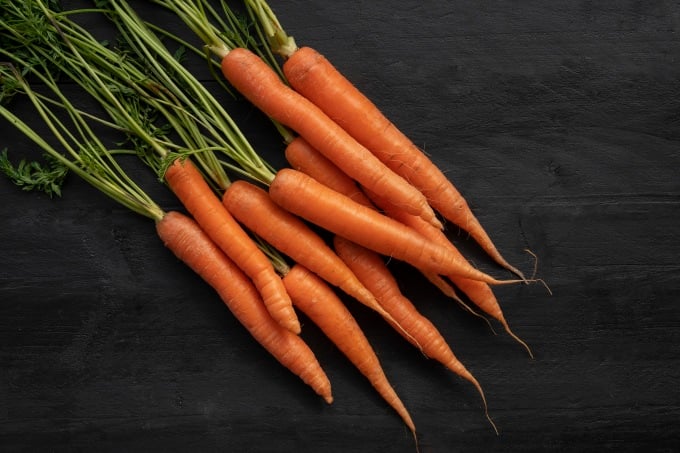Carrots, squash, potatoes, and green beans are rich in soluble fiber, which is beneficial for sick people, and low in insoluble fiber, which reduces intestinal irritation.
Vegetables provide essential nutrients and prebiotics (fiber) that promote the growth of beneficial bacteria in the gut, helping to keep the digestive system healthy.
According to a 2021 study by the University of Miami Leonard Miller School of Medicine in the US, 27 people with ulcerative colitis who ate a high-fiber, low-fat diet for 4 weeks had lower levels of harmful gut bacteria and inflammation.
Vegetables that are good for people with diabetes include carrots, squash, zucchini, pumpkin, zucchini, potatoes, sweet potatoes, green beans, and asparagus. Vegetables that contain a lot of soluble fiber can absorb water into a gel when in the intestines. This gel has the effect of slowing down the digestive process, improving the consistency of bowel movements.
They are also lower in insoluble fiber, which can irritate the intestines during flare-ups. Therefore, people with ulcerative colitis who consume these vegetables reduce irritation of the digestive tract. Limiting insoluble fiber also prevents or reduces bloating, diarrhea, and abdominal pain.

Carrots contain a lot of soluble fiber which is good for the intestines. Photo: Freepik
Cooked vegetables are often easier to tolerate than raw vegetables, especially when symptoms are severe. Peeling carrots, turnips, squash, and potatoes removes some of the insoluble fiber, which is less irritating to the gut.
People with ulcerative colitis should cook vegetables until soft, puree them (if necessary) to make them easier to digest and improve nutrient absorption. Avoid adding too much fat to your food, as it can trigger or worsen symptoms.
People with the condition should limit cruciferous vegetables such as broccoli, cauliflower, brussels sprouts, and cabbage. These are common causes of gas and bloating, whether raw or cooked. Depending on the severity of the problem, cruciferous vegetables may be avoided during a flare-up or eliminated from the diet altogether.
Tough leafy greens can still be unpleasant for some people when cooked. Raw salads can be eaten if tolerated and if there is no gastrointestinal problem with consumption.
Ulcerative colitis symptoms vary from person to person, so the appropriate vegetables may not be the same. Patients should consult a doctor to choose the right type to avoid aggravating the condition.
Mai Cat (According to Everyday Health )
| Readers ask questions about digestive diseases here for doctors to answer |
Source link

























![[Photo] Gia Lai provincial leaders offer flowers at Uncle Ho's Monument with the ethnic groups of the Central Highlands](https://vphoto.vietnam.vn/thumb/1200x675/vietnam/resource/IMAGE/2025/7/9/196438801da24b3cb6158d0501984818)














































































Comment (0)